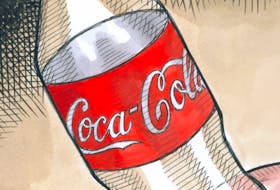Compared to the rest of Canada, Newfoundland and Labrador politics is downright boring these days.

The Ball Liberal government’s defining characteristic thus far is don’t rock the boat. And it seems to be working for them, but it’s terrible for those craving a little spice and a few bold and progressive ideas with their public policy.
It could be worse. Populist politics, most of it right-wing and awful, is springing up all over Canada.
There’s Doug Ford in Ontario — by all accounts a very wealthy man with a checkered past who, like Donald Trump, is appealing to the very people who stand to be hurt by his policies. And while right-wing populism around the world is often led by anti-immigration policies, in Canada it’s not as simple as that or as easily defined.
Some of it is rooted in the foundation laid by the Harper Conservatives who perfected wedge politics, including among the diverse populations of Canada as they wooed some immigrant communities and shunned others.
The Conservatives under Harper also weren’t fans of government — or rather, the role government should play in the interest of the common good.
And then there is the outsider element. Conservatives who helped build the elitist political system they now say they “reject” are getting away with defining themselves as outsiders.
This resonates with many voters who are tired of politics as usual, who are disenfranchised, stagnating economically and feeling left behind. They are desperate for a new kind of politics.
Canadians worked hard to oust the Harper Conservatives and yet these same type and, in some cases, the very same ultra-conservative politicians, are infiltrating provincial politics.
In Quebec, it is the Coalition Avenir Quebec (CAQ), another right-wing party, that is taking up all the air time and, with it, a big chunk of the polls.
In Alberta, the UPC’s Jason Kenney, a Harperite, is posing a threat to the Rachel Notley NDP government.
In New Brunswick, several retired federal Harper Conservatives have come out of the woodwork to run for the provincial Conservatives.
And federally, the Scheer Conservatives continue to gain on the Trudeau Liberals.
Quebec, Ontario and New Brunswick all go to the polls this year. The outcome of these elections could change the types of struggles progressives will have in the years ahead. There is a lot at stake.
Stephen Harper may be gone from politics, but he and his party did a lot of damage to the social fabric of Canada. His brand of divisive politics has taken root.
Three years hasn’t been a lot of time to fix the damage.
And then there have been the political mistakes by the federal Liberals: bungled tax and electoral reform, signing another bad trade deal (TPP) and missed opportunities to deliver on some key progressive policies.
That’s not to say there haven’t been some critical improvements. There have been many — eliminating bad labour legislation, expanding public pensions, funding for housing, measures to advance women’s equality.
But when you pin your hopes on growing the middle class and fewer people identify as being part of that group, it creates a quandary for the governing Liberals.
Economics is driving a lot of the angst and outsider identity. The failure of trade and globalization to share benefits more equitably has been like fuel on the populism fire.
People have good reason to be ticked off. But the solution is not more conservative policies that make the hole bigger, it’s a progressive and bold agenda that lifts all boats.
A new report compiled by the British Library of the House of Commons has found that inequality is headed for a place of no return.
Since 2008, the wealth of the richest one per cent has grown substantially faster than the wealth of the remaining 99 per cent — six per cent a year versus three per cent a year.
By 2030, the one per cent will own two-thirds of the world’s wealth. It is staggering, but it also signals to people that policies and governments and institutions are working for the wealthy and not the rest. And rarely a day goes by when the corporate lobby doesn’t find a new argument to have their taxes cut, leaving less public revenue to build a sturdier social fabric that benefits everyone.
In this context, it’s not difficult to see why some people would be attracted to populist politicians who prey on fears and insecurities. Immigration and racism are handy scapegoats for an economic system that continues to reward the richest while everyone else is desperately treading water.
Canada needs more bold ideas from the other side of the populist spectrum. Because right now Harper may have been defeated, but his brand of conservatism and divisive politics lives on.
Lana Payne is the Atlantic director for Unifor. She can be reached by email at [email protected]. Twitter: @lanampayne Her column returns in two weeks.








